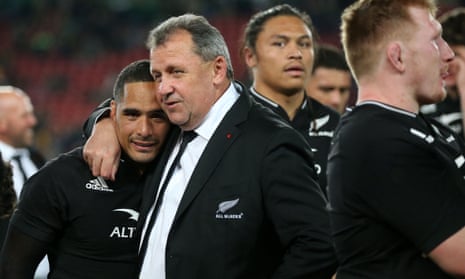
The upbringing of All Blacks coach Ian Foster revolved around faith, a key element of his family life. This faith has been crucial during his tenure as New Zealand’s head coach, which faced uncertainty at one point. Foster, now 58, is set to lead the All Blacks in the World Cup Final against South Africa this Saturday.
Foster’s late father, Jack, transitioned from a hairdresser to a Presbyterian minister, instilling strong faith within the family. This faith has supported Foster through a challenging four-year period, starting when he succeeded the two-time World Cup-winning coach, Steve Hansen, whom he had assisted from 2012 to 2019.
The low point was last year when New Zealand suffered their first home series defeat in nearly three decades to Ireland. However, they bounced back, defeating South Africa and Argentina in the World Cup, avenging those losses.
The only remaining hurdle is to triumph over South Africa in the final and redeem their heaviest-ever defeat, a 7-35 loss in a warm-up match in August.
Foster is typically reserved about his personal life, but he spoke in 2021 about the significant role of faith in his family. His family’s faith was reflected in their actions, including helping those in need by offering shelter and time.
Foster also recounted a valuable lesson he learned from a former local gang member who stayed with his family, emphasizing the importance of not allowing labels to define a person’s worth.
This lesson has translated into Foster’s relationships with the players. After a significant victory against South Africa in 2022, Foster was moved to tears. Unbeknownst to him, a group of players, including Ardie Savea, Beauden Barrett, and Aaron Smith, expressed their faith in him to New Zealand Rugby CEO Mark Robinson, despite a challenging period of results.

Foster, who is married with three grown children, has made personal sacrifices, including the relinquishment of his coaching position to Scott Robertson. His unwavering personal philosophy and faith serve as anchors in his life.
Regardless of the outcome of the World Cup, Foster believes in not being defined by external opinions. If he wins the trophy, he will be remembered as a World Cup-winning coach whose employers once had doubts about him. Yet, Foster maintains that history is a thing of the past, and the future is yet to be written.

Leave a Reply